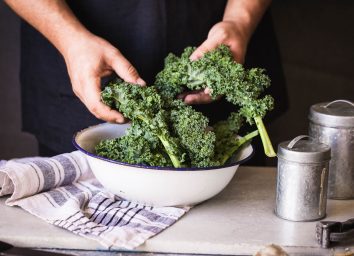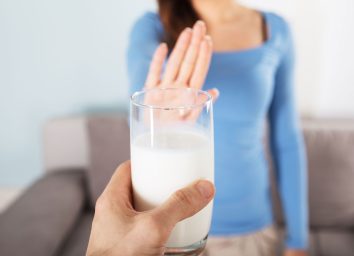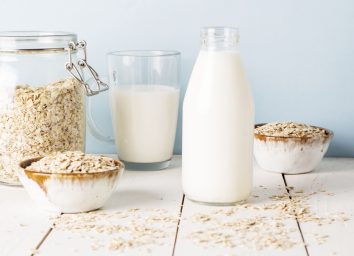Will Ditching Dairy Help You Lose Weight?
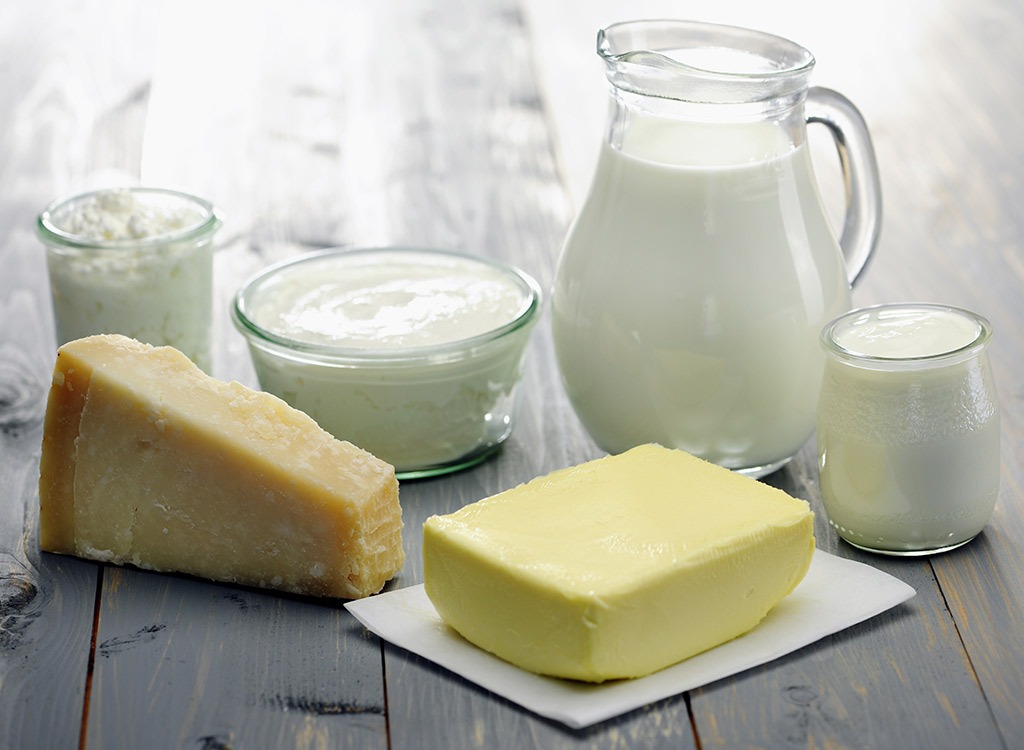
It's the weight-loss trick celebrities such as Khloe Kardashian and Jessica Alba have credited for helping them slim down. By forgoing diet staples like cheese, milk, and yogurt, dairy-free advocates swear cutting out cow's milk has helped them shed those unwanted pounds.
But is cutting out this entire food group really the magic factor to help you lose weight for good? Eat This, Not That! asked Jim White, RD, ACSM, and owner of Jim White Fitness and Nutrition Studios to get the lowdown on this dairy-ditching trend.
Why Cutting Out Dairy Might Help You Lose Weight

You've likely heard anecdotal evidence of people dumping dairy and seeing results. Khloe Kardashian has famously said that ditching milk products helped her lose 11 pounds in just a month and a half without making any other changes. Additionally, when panelists on the Zero Belly Diet gave up dairy for six weeks, they saw dramatic results; participant Martha Chesler said she lost 7 inches off her waist! Additionally, So, what's the magic behind ditching dairy and weight loss?
You Changed Your Caloric Intake
Although some people may have found success losing weight after giving up dairy, it likely has more to do with a combination of healthy eating habits and a decrease in calories than giving up cow's milk specifically.
"A cup of skim milk has 90 calories. If you're really trying to watch your calories, doing something like unsweetened almond milk that has 30 calories, yeah, you can decrease the number of calories you take in on certain products like that," White explains.
So if full-fat dairy makes up a significant portion of your daily caloric intake, yes, cutting out the stuff will help you lose weight because you're reducing calories.
You Cut Out An Allergen
Additionally, eschewing cow's milk may help flatten your belly by making you feel less bloated, especially if you are one of the 65 percent of US adults who are lactose intolerant. Not being able to digest dairy properly could lead to bloating, gas, cramps, and other GI issues. Leaving it off the menu will alleviate many of these belly-widening issues.
It's Not Because of This Myth
Although giving up dairy to lose weight has resulted in some success stories, White says some of the purported health benefits of cutting out the food group are largely exaggerated.
Some people assume dairy is inflammatory, similar to foods such as sugar and trans fats that trigger inflammation in the body, which can lead to weight gain and chronic disease. Turns out, it's only true for people who are lactose intolerant.
A 2013 study published in The American Journal of Clinical Nutrition found that "dairy product consumption does not exert adverse effects on biomarkers of inflammation in overweight or obese adults."
Why Keeping Dairy In Your Diet Might Help You Lose Weight

Dairy Fat Increases Satiety
In fact, keeping milk products in your diet could actually help you lose weight; a study published in the Scandinavian Journal of Primary Health Care found that high intake of dairy fat was associated with a lower risk of belly fat. Experts believe the fat content of dairy products can extend feelings of fullness and minimize total caloric intake, which helps keep belly fat at bay.
Dairy Protein Builds Muscle Mass
Another study that year from the journal Nutrition & Metabolism found that milk protein might actually help improve your metabolism by helping to build lean muscle mass. More lean muscle mass means your body burns more calories at rest, which will help you slim down.
Bottom Line: It Might, But It's Not Necessary
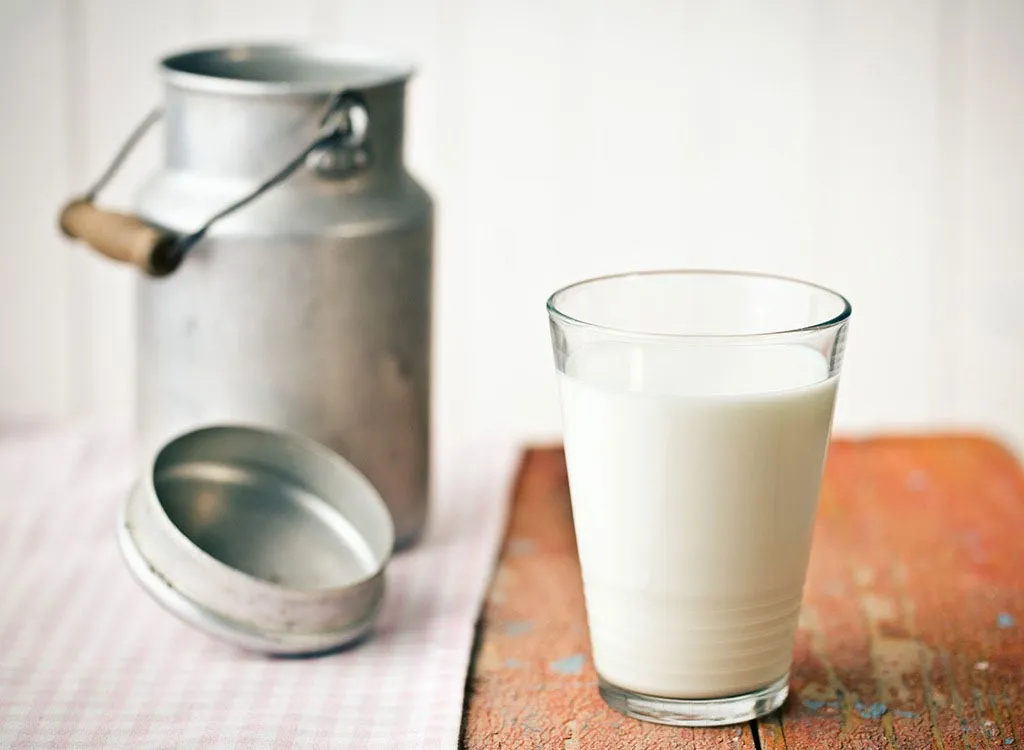
Ultimately, it's a personal decision whether or not you want to keep dairy as part of your overall diet. White explains that dairy does come with countless health-related benefits: "There are so many benefits of having dairy such as calcium, which acts as an electrolyte, and vitamin D, which of course is a major deficiency in the U.S. It also has protein."
However, If you're lactose intolerant or just don't enjoy the taste of milk products, you can still have a perfectly healthy diet and lose weight without it. Just make sure you're eating other calcium-rich foods and getting your recommended 1,000-1,500 milligrams a day.
At the end of the day, losing weight requires a combination of lifestyle choices including eating more fresh food, cutting calories, and increasing activity and sleep. While cutting out an entire food group may help you lose weight, it's because of the decrease in calories; ditching dairy itself isn't the magical answer.
"Overall, I believe that dairy should be an important part of the diet, especially if you get into those calcium-rich nutrients," White concludes.
How to Keep Dairy In Your Weight-Loss Diet
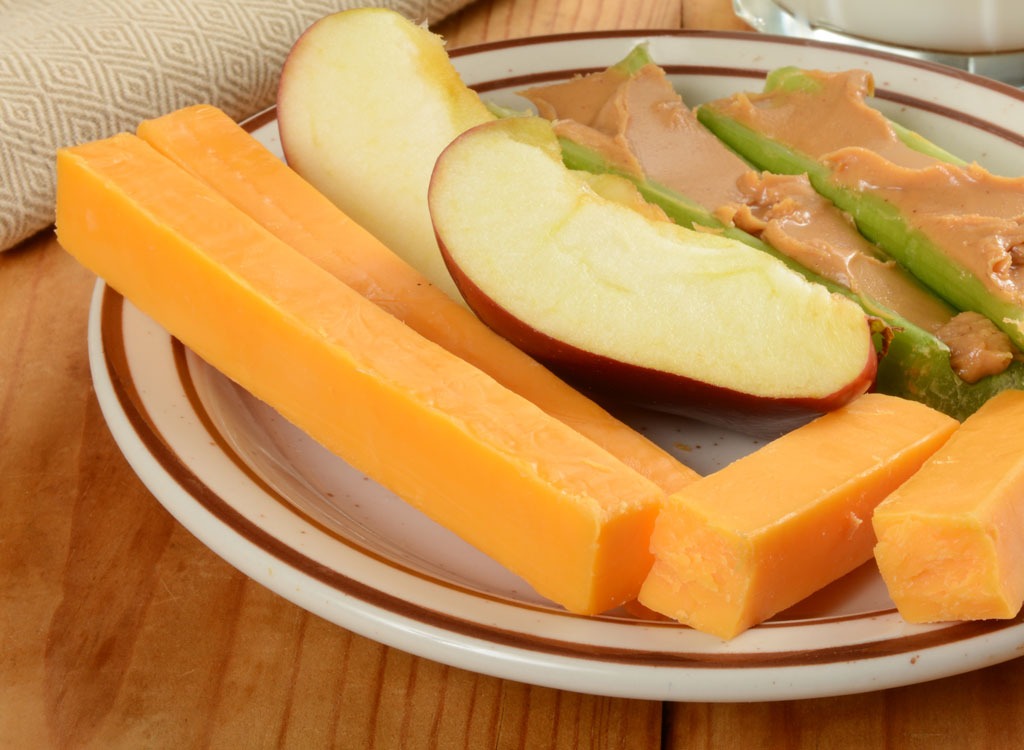
If you're trying to lose weight and want to keep dairy in your diet, White recommends paying attention to the type of dairy you're consuming; Greek yogurt is better than regular because of the rich protein content. Full-fat dairy can also have a place on the menu—especially because fat can help absorb vitamins better—but low-fat and fat-free options are better for people who are looking to cut calories. You can enjoy up to three servings a day, he says. That will give you the 1,200 milligrams of calcium you need.
"There's a big reason why people gain weight and it's eating too much food, and it's eating unhealthy foods," White says, adding that it's just not realistic to cut an entire food group especially because of all the good dairy does.

